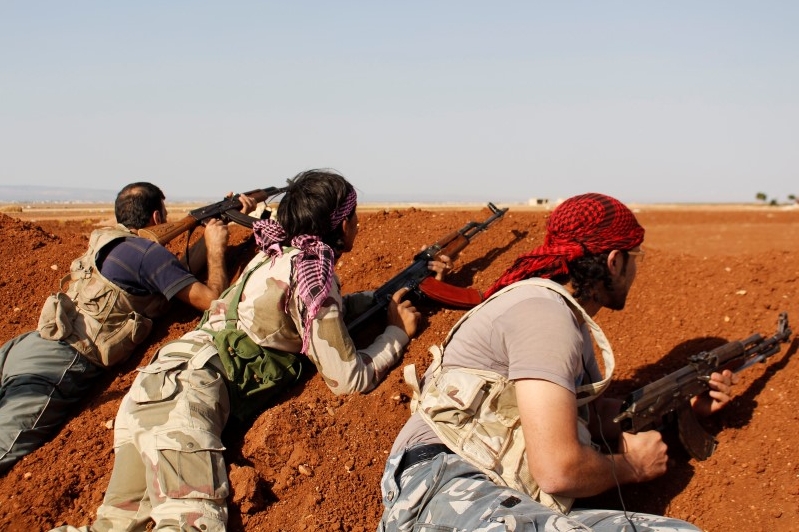
Recent attacks with chlorine and mustard gas on the battlefield in Syria show that the use chemical weapons in the civil war is becoming routine, a U.S. official said on Monday.
A confidential report by the Organization for the Prohibition of Chemical Weapons on Oct. 29 provided the first official confirmation of use of sulfur mustard, commonly known as mustard gas, in Syria since it agreed to destroy its chemical weapons stockpile, two years ago.
While the OPCW did not specifically say which of the many sides in the war used the chemical, diplomatic sources said it had been used in clashes between Islamic State and rebel fighters in the town of Marea in August, as well as in rebel-held areas under attack by Syrian government forces.
That raised the possibility, diplomatic sources said, that Islamic State had gained the ability to make it themselves, or that it may have come from an undeclared stockpile.
"The sad reality is that chemical weapons use is becoming routine in the Syrian civil war," Rafael Foley, representing the United States, told a special session of the OPCW's Executive Council, in remarks sent to Reuters.
"There is no greater threat at this time to the Convention and the international norm against chemical weapons than the continuing use of such weapons to harm and kill the Syrian people."
Foley said the reports showed that "the Syrian regime has continued to use chemical weapons on its own people despite its obligations under the Chemical Weapons Convention".
The comments were made at a closed meeting by the 41-country Executive Council called in response to the OPCW findings that toxic agents, including the mustard gas, had been used between March and August of this year.
"In sum, ominously hanging over the entire discussion in the Council is the fundamental question of whether Syria is prepared truly to renounce chemical weapons," Foley told delegates.
The government of Syrian President Bashar al-Assad agreed to give up its chemical weapons stockpile in 2013 after a large scale sarin attack killed hundreds of people in the outskirts of the capital, Damascus.
About 250,000 Syrians have been killed in 4-1/2 years of civil war, with 11.5 million driven from their homes.






